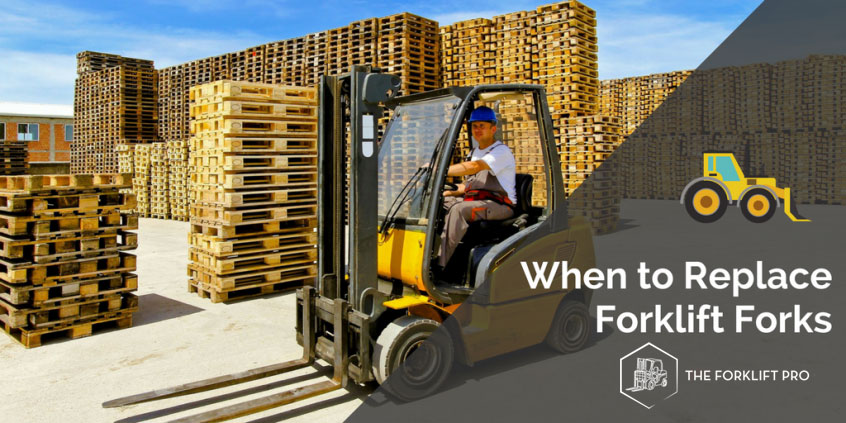Forklift safety means evaluating all aspects of the machine on a daily or per-use basis, including forklift forks and attachments. Productivity only happens when your material handling equipment is in safe working condition.
Federal law (OSHA Standards 29 CFR 1910.178) instructs that forklift forks used around-the-clock must be inspected on a per-operation basis. Failing to address fork damage can lead to lost product, injury, and fines.
We’ve outlined a few telltale signs that you need to replace your forklift forks.
Load marking
One of the easiest ways to tell you need to replace your forks is by the load marker. Forklift forks have load guideline markings. If the markings are no longer legible, they must be replaced.
Fork tip damage
The tips of forks are susceptible to damage that may not be noticeably visible without proper inspection. Normal wear is expected, but fork tips need to be replaced if they have endured excessive wear.
Uneven forks
Standard forks are all built at a 90-degree angle. If the forklift surfaces are uneven or bent from load wear on the blade, the forks will need to be replaced. Fork height should be relatively symmetrical as well. Anything beyond 1.25 – 2 inches is an indicator that the fork should be replaced.
Fork fractures
Even the smallest cracks and fractures can be enough to put your forklift forks out of commission because they typically don’t stay small. Fractures occur when the forks are overloaded and cause them to weaken over time. If you notice a fork fracture of any size, it’s time to replace it.
Fork thickness
Over time, fork thickness diminishes with normal wear and tear. However, if a fork is less than 10 percent of its original thickness, it will need to be replaced.
Fork hook damage
Wear, damage, and cracks on the fork hooks may occur over time. Retire and replace the forks if the distance between the fork and fork carrier is noticeable.
Positioning lock
The fork positioning lock must be in working order at all times. Any defect in the positioning lock can potentially cause serious safety issues, as the result may be forks separating from the machine.
If you are unsure of whether or not a fork defect is enough to take it out of operation, play it safe. Don’t operate any forklift that you feel is a safety hazard.
The Forklift Pro thoroughly inspects each piece of material handling equipment that enters our warehouse. You can always rest assured that our used forklifts and material handling equipment accessories are in prime condition and ready to put to work.

